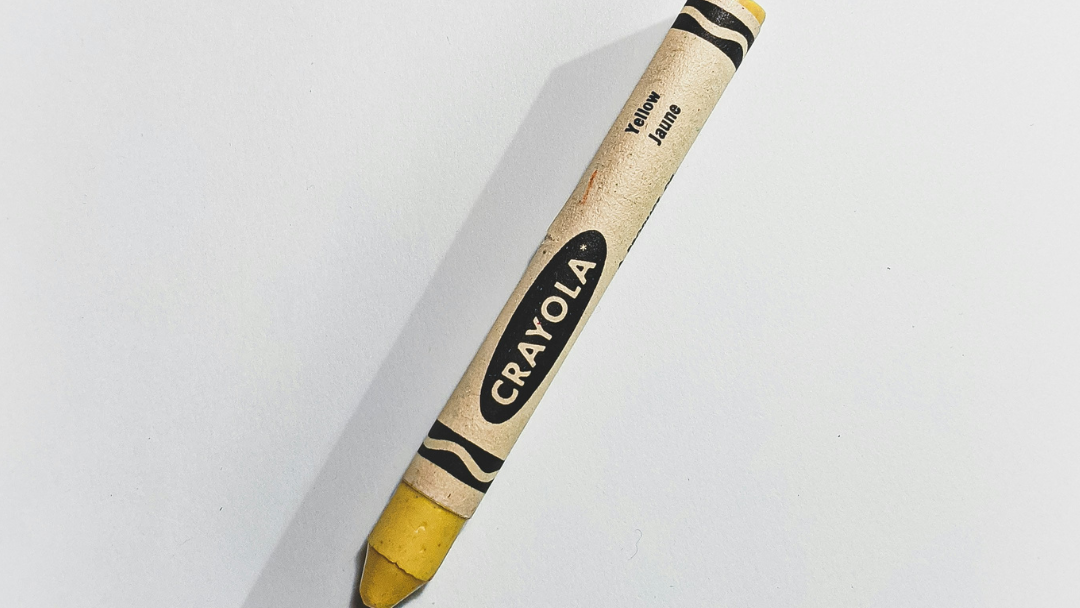When Nora’s children were children, she never permitted them to go to the zoo. She hated seeing animals in small spaces, away from their people, even if it was for conservation purposes. Now her son visits zoos all the time, in every city he and his wife visit. He posts the photos online. He does this, Nora thinks, because he does not love her anymore.
But it is Nora’s daughter who is sick, not her son. Amanda, her daughter, has moved back across the country, home again with Nora. Amanda is thirty-six, Nora’s eldest child. She has left her husband, Alix, and their pretty, square lavender house in Seattle to spend her last five to seven months with her mother.
Nora is bewildered by these turns of events, and yet, she must go on, go on to work, and to earn a living because she will outlive her daughter. Nora fears losing the house and having to live in another place unchosen.
“It’s fine,” Amanda says in the early mornings when the air is frosty, and it’s still blue-black outside, and Nora is fumbling at the sink, preparing for work. “Go, go,” she shoos, “I’ll be here when you get home. I love you! I love you!” Amanda is full of love these days; she is deranged and monotonous with daughterly love. She watches Mom from the front screen door while Mom hammers down the front steps to her car between the melting snow piles and waves as Mom sits inside the vehicle, warming it up. Nora doesn’t like Amanda watching her like that; she thinks her daughter should be doing something else, anything else: there’s so little time, but she cannot tell her what to do. She blames herself for never being able to do that.
When Amanda and Keith were children, and their father was still alive, they would take weekend trips across Pennsylvania, to places like Gettysburg, and Fallingwater, and Crystal Cave. Nora owned a thick guidebook then; its pages all dogeared with fun, affordable things to do with the entire family. They visited Knoebels, Storybook Land, and the Pez Museum. Factories too: Herr’s Potato Chips, Wilbur Chocolates, Crayola, Turkey Hill Ice Cream. John, her husband, fretted about money and Nora would assure him they could afford these short getaways. At heart, Nora was a tomboy; she never cared about new clothing or decorating the house or saving for the future or getting perms and her nails done twice a month. She would forgo this or that essential, stowing cash away here and there to present to John whenever the month came when she knew they all needed to escape somewhere else.
There had been another child. A child between Keith and Amanda. A child named Kevin. The summer Kevin was three, Amanda seven, and Nora unknowingly pregnant with Keith, she’d let her in-laws take the children for the week to Ocean City, where they had a timeshare. Nora hated being away from her children, and from the first night they departed, she regretted allowing them to go. But the kids were fine. Every evening Nora called the children on the phone, and they told her about their time at the beach, about miniature golfing, and the boardwalk. One evening, Amanda called her mother before their usual time. She said that her friend from school, Meg-you-know-Meg, happened to be in Ocean City too with her parents! Could she stay over Meg’s? Grandmom and Grandpa said to ask you! Still irritated at her in-laws for stealing her children, Nora told Amanda, okay, enjoy. Give me Meg’s mother’s phone number, Nora said, and Amanda did. Then, in the night, while Amanda was sleeping over her friend’s, Kevin and Nora’s father-in-law and mother-in-law all died from carbon monoxide poisoning.
***
One afternoon after Amanda returned, the lockdown alarm sounded at the public school where Nora worked. She was in the back of a second-grade classroom, squatting on a miniature plastic seat between her two charges, Mohammed and Emma. Nora was not a teacher. She did not have a degree or any specialized training. Each August, the school assigned her two special needs kids, and she’d stay all day beside them, helping with their classwork. In this manner, Nora had been in the second grade for decades. Often, she came home with bite marks.
That day, the teacher followed the procedures, securing the doors and rolling down the black cloth covers over the interior door windows while Nora calmed the children. Not just Emma and Mohammad but other children clamored near her, covering her body with their small hands. They preferred her to their teacher, of course, and together they stayed in that position for a long time, one holding the cuff of her ear, another pressing a pinky finger into Nora’s ankle, like one giant frightened being, until another alarm sounded, indicating the all clear.
Someone wrote the parents an email, and the students were dismissed early. In the parking lot that doubled as the schoolyard and bus stop, several parents and grandparents stopped Nora to understand what had really happened and to thank her or to say they felt better knowing that, at the very least, their child was in the building with Nora. Nora drove away from the school with tears of helplessness in her eyes. Her eyes, so blurry, she ran a light.
***
Nora lives in the brick rowhouse that her in-laws bought new in 1951. The house retains its high, grisly hedging, though most families have torn theirs out, including her neighbors on either side, so Nora’s hedging is like a cowlick on the block, tilting, amusing, and patchy, overhanging the dull sidewalk. The oldest neighbors once believed if anyone were to tear their hedging out, it would have been Nora. They think there is no point to the hedging if it stands alone, if you can see inside the house anyway, if it’s ugly and disheveled.
Behind the hedging, a short grass slope rises with the cement steps leading to the front door. Pulling up to the house, Nora cannot see Amanda at her usual post at the screen window, and for a moment, Nora knows in her bones that Amanda is already gone–she knows the entire previous portion of the day had been the dream, the children, their warm hands, and in that naked half-minute, she was sitting in the truth; unmoving, cloudless, she gripped the steering wheel, her mouth shut, her pulse accelerating, until riding to the end of this wave, she understood no, no, she had only come home early, and Amanda didn’t know; that’s why she wasn’t waiting. Amanda could be within any other window right then.
***
The following week, Amanda and Nora went walking along Tookany Creek. They had the dog with them, Keith’s dog, Travis, a dachshund as bouncy as champagne. Travis is who keeps the connection between Nora and her son bubbling along. Her saving grace: she likes animals, and so does he.
Yet. Keith and his wife’s jobs have gone remote. They can work anywhere–they can finally see the whole world. The dog is cramping their style. They want to hit every Disney, even the one in Hong Kong, which they heard is teeny compared to the others. They could bring Travis; airlines encourage it, except Travis fears airplanes. Nora takes the dog often, though dachshunds were never a breed she considered much for herself, nor was a dachshund the kind of dog she pictured Keith choosing either. Maybe Kevin. However, she worries she only thinks this because Kevin is so small.
“Keith and Kelly are psychopathic consumers,” Amanda said. The dog was circling between them, delighted by the loose pebbles on the trail. The pebbles were tangled in something. “They live for joy.”
“Have you talked to Alix?” Nora asked.
Amanda kicked the pebbles Travis was pattering. “You love me most in the world,” she said. “I’d be a fool not to come back here now–”
“You and Alix were happily married–”
Amanda threw her hands up, jerking the leash: “You never think of the cosmos! Did you ever think about how the only reason this all feels so perverted is because I’m younger and the child and you’re older and the adult, but it cosmos time, I’m not actually that much younger than you. What is twenty or thirty years in cosmic shares?” She snapped her fingers, then picked up the dog and petted it furiously.
“It’s not nothing,” Nora said finally, although the pulse of Travis’s meaty panting on her face made her think of her son again. Her daughter, being there, was less of a concern.
This encroachment had always been one of Nora’s more serious problems. Some could say thinking about one child when she was in the presence of another child was Nora’s longest-running defect. As a girl, she grew up in Lancaster, near the Amish. Her father had been a super for a boy’s reform school, and they lived in a basement on the quad, in rooms with square, rectangular windows racing in a line just under the ceiling, level with the ground. The boys were something to love, and like an aroused Victorian, Nora fell in love with their bony ankles first, glimpsed as they moseyed past her bedroom windows, fleeing with male laughter, while she lay on her bed listening to folk records.
One boy, her first boyfriend, who’d almost aged out of reforming when they first took things up together, gave her two tuxedo kittens before he left for the West. She named them Keith and Kevin, and amazingly, her father let her keep them, deeming them suitable for the school’s small rodent problem. She’d never mentioned this story to John.
The first Keith and Kevin never got along. They stayed in separate rooms as often as they could. When one slept with her, the other didn’t. When one mewed for food, the other feigned disinterest. When one followed her around, the other pretended to hate her, and so forth. Only twelve, Nora’s response was to bend down to Keith and ask, petting him, “Where’s your brother? Where’d Kevin go?” Then, with Kevin, she’d do the same: “How’s Keith? Was your brother a good boy today? Were you kind to him? Please don’t bite him.”
Amanda hadn’t stopped speaking. The winter trees shined like cutlery in the distance.
“I don’t know why I followed Alix out there!” Amanda continued, “If I’d only been his girlfriend, I’d never done it. That would have been pathetic, but a wife moving for a husband is fine.” Her mouth twisted. “I really did like our house. I wish you’d come to visit. It was very Japanese feeling, like something you would see in Japan, simple. Even Keith liked it, and you know he hates giving me any credit.”
Travis had found something else he liked in the dirt. He needs a sibling, Nora almost said aloud, watching him closely.
“What are you doing?” she asked him.
“How’s my little baby?” Amanda said after, in mock sweetness. Nora snapped up at her daughter, baffled, thinking she was mocking her. Amanda smiled.
***
One time, during a tour of Crayola, their guide, a pretty man, told their group that back in the day, before the machines, the company would assign each farm family a color, then they’d ship boxes of crayons and their coordinating color wrappers to each farm and all winter the families would wrap crayons. There were the blue families, the green families, the violet families, and so on.
Amanda was too old to find the story charming. But Nora and her son–which one, she can’t remember–listened attentively.
“Which color would you want us to be?” he asked her.
“You pick,” Nora told him. At some point, Amanda wandered away, to the gift shop, probably, with her father. She and he always liked the gift shops.
Nora was never a drunk, but her memories slide. What she knows, she knows vaguely. She knows she indulged her mother-in-law’s recommendations, wondering what her own mother’s might have been. She knows she watched baseball with her father-in-law, all the while wishing he was her own father. For decades, she cared for her husband. She only pinched, never hit, her children. Desperate, she’d send them to their rooms and, shortly after, come in after them, knocking on the door shyly like she was the one in trouble.
Nora sees things online sometimes– ‘One time you went outside with your friends, and it was the last time, and you didn’t know it,’ ‘One time your entire family sat together for dinner, and it was the last time, and you didn’t know it,” and she thinks, thank God, thank merciful God.
It amazes her to imagine people would draw attention to this, for what if someone found a way to fix it. What if they found a way so you could know, and they made it so the phrase became ‘the time before the last time’ and soon after, ‘the time before the time before the last time.’ If you let them, they would. They would smother your life down into a dark hole where you could see nothing, touch no one, remember nothing, not even occasionally, the wrong people.
SAMANTHA NEUGEBAUER is a lecturer at NYU in D.C. and a senior editor for Painted Bride Quarterly.
Like what you’re reading?
Get new stories, sports musings, or book reviews sent to your inbox. Drop your email below to start >>>
NEW book release
Direct Connection by Laura Farmer. Order the book of stories of which Mike Meginnis says there is “an admirable simplicity at their heart: an absolute, unwavering confidence in the necessity of loving other people.”
GET THE BOOK



